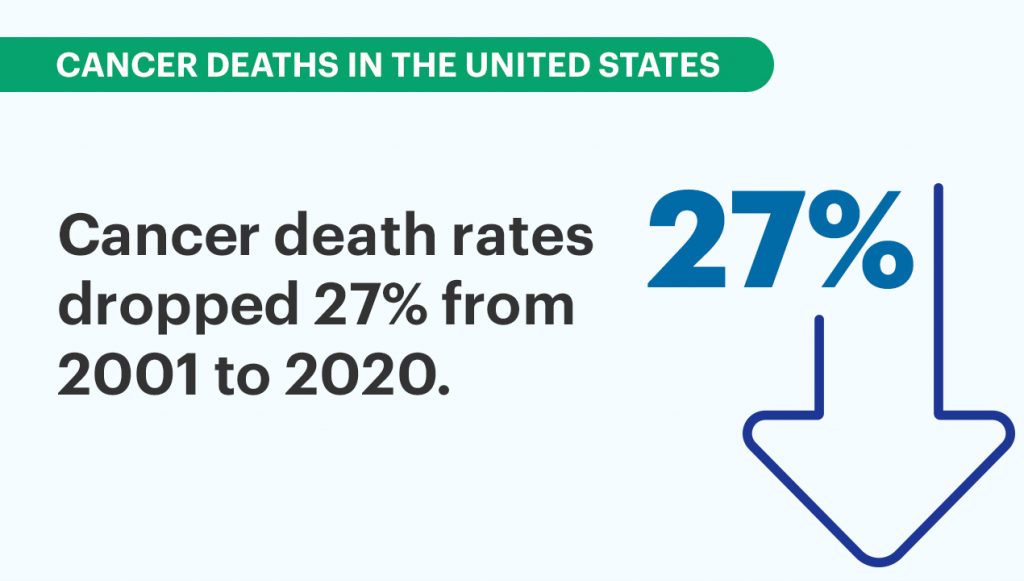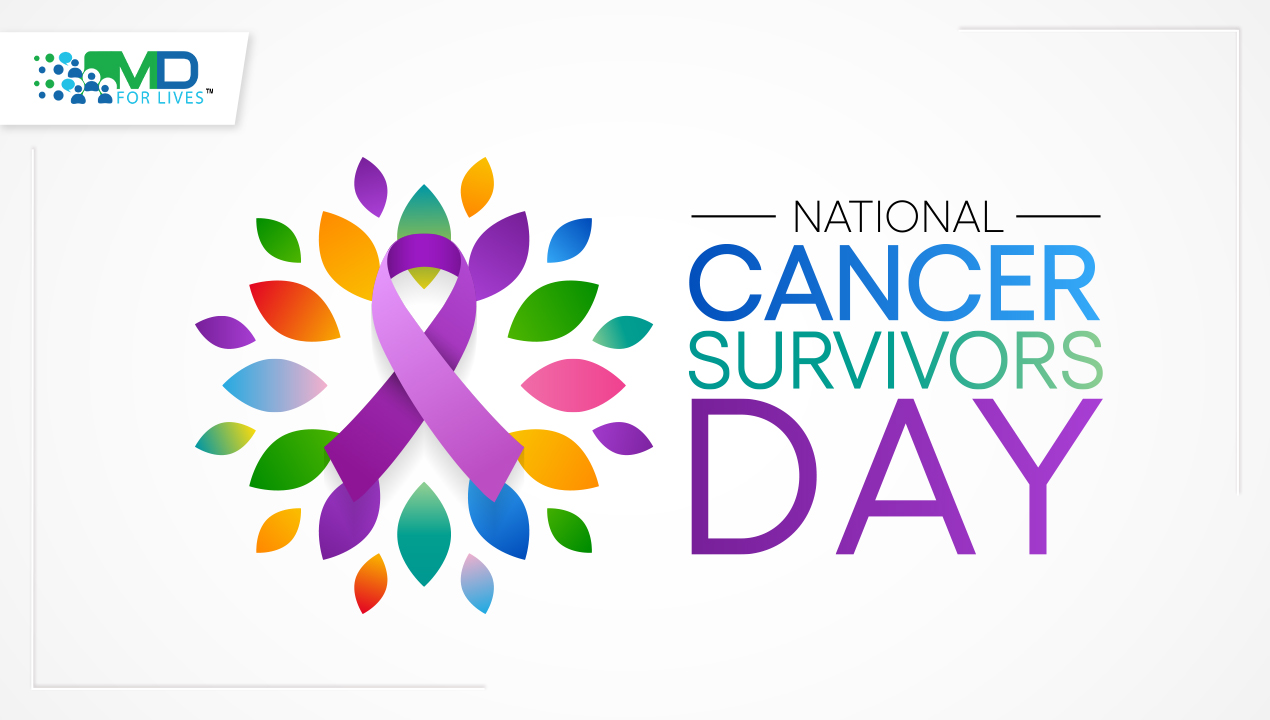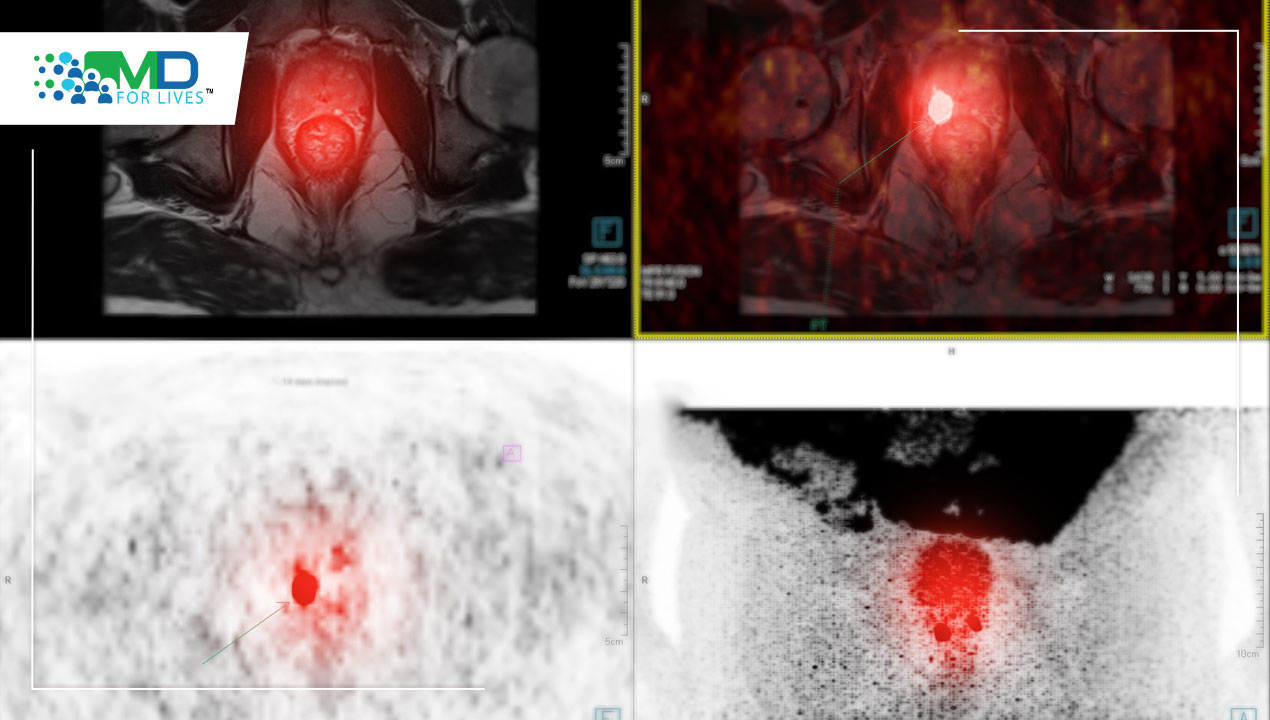Cancer Survivor Day is a day dedicated to celebrating the lives of those who have survived cancer and honoring their resilience. It serves as a reminder of the strength and courage exhibited by cancer survivors throughout their challenging journey. It also highlights the progress made in cancer research, treatment options and support services for survivors. Oncologists play a vital role in the fight against cancer, utilizing their expertise and dedication to provide specialized care, develop treatment plans and support patients through their cancer journey.
Cancer Survivor Day is a powerful symbol of hope, unity and the triumph of the human spirit over adversity.
Vital role of physicians in driving survival rates for cancer patients
Physicians play a critical and multifaceted role in the fight against cancer, contributing significantly to the diagnosis, treatment and ultimately the improved survival rates for cancer patients. Their expertise, knowledge and dedication are pivotal in ensuring optimal patient outcomes.
In the realm of cancer diagnosis, physicians serve as the frontline of defense, utilizing their clinical skills, intuition and advanced diagnostic tools to identify and evaluate potential cancer cases. From conducting thorough physical examinations to ordering and interpreting diagnostic tests such as biopsies, imaging scans and laboratory analyses, physicians play a vital role in determining the presence and extent of cancer in patients. Their ability to accurately diagnose cancer at an early stage is crucial as it allows for prompt intervention and improves the chances of successful treatment.
Once a cancer diagnosis is established, physicians assume the critical responsibility of developing and implementing appropriate treatment plans. They collaborate closely with oncology specialists and other healthcare professionals to devise comprehensive strategies tailored to the unique needs of each patient. This involves considering factors such as the type and stage of cancer, the patient’s overall health and preferences and the latest advancements in cancer treatment options. Physicians guide patients through the various treatment modalities available, including surgery, radiation therapy, chemotherapy, immunotherapy, targeted therapies and hormonal therapies, among others. They monitor treatment progress, make adjustments when necessary and provide essential support and guidance to patients and their families throughout the often arduous treatment journey.
In addition to their direct involvement in patient care, physicians also contribute significantly to driving survival rates for cancer patients through their role in clinical research, advancements in medical technology and the dissemination of knowledge. They actively participate in clinical trials, evaluating new therapies and treatment approaches, which ultimately lead to improved outcomes for future cancer patients. Physicians collaborate with researchers and scientists, sharing insights and contributing to the development of new drugs, innovative treatment techniques and breakthrough discoveries. Their engagement in medical conferences, publications and educational initiatives ensures that the latest advancements in cancer care reach a broader audience, enabling more effective treatments and better survival rates.
Physicians remain vigilant in monitoring cancer survivors for any signs of recurrence, employing regular check-ups, diagnostic tests and imaging scans to closely monitor their patients’ health and proactively detect any potential cancer recurrences at the earliest stages.
Furthermore, physicians provide essential emotional support, empathy and compassionate care to patients and their families. They guide them through the complex web of emotions, fears and uncertainties that accompany a cancer diagnosis, fostering hope, trust and a sense of empowerment. Physicians not only treat the physical manifestations of cancer but also address the psychological and emotional well-being of patients, recognizing the importance of holistic care.

Statistics and success stories
According to the official website of the Centers for Disease Control and Prevention, there has been a significant decrease in cancer death rates over the past two decades, specifically from 2001 to 2020. The statistics indicate a 27% decline, with the death rate per 100,000 population decreasing from 196.5 to 144.1.

Source: Centers for Disease Control and Prevention. An Update on Cancer Deaths in the United States. Centers for Disease Control and Prevention. Published May 29, 2020. https://www.cdc.gov/cancer/dcpc/research/update-on-cancer-deaths/index.htm
The 5-year survival rate for breast cancer has increased from around 75% in the 1970s to over 90% during 2011 through 2017. Advancements in precision medicine, genomics and molecular profiling have enabled physicians to tailor treatment plans based on the specific characteristics of a patient’s tumor. This personalized approach has resulted in improved outcomes, with higher response rates and longer survival for patients with certain types of cancers, such as lung cancer and colorectal cancer. NHS England has released a one-year cancer survival index that examines the survival rates in 2020 compared to those in 2005. The data reveals that the overall first-year survival rate has increased by 9%, reaching 74.6%. Survival rates for pediatric cancer exceeded 86%.
Breast cancer is one of the most common cancers among women. Early detection and advancements in treatment have greatly improved survival rates. Physicians are increasingly utilizing targeted therapies and precision medicine approaches. Survivorship programs, led by physicians and multidisciplinary teams, provide ongoing support, guidance and monitoring to improve quality of life and detect potential cancer recurrence or secondary cancers at an early stage.
These statistics and success stories underscore the significant impact of physicians in increasing cancer survival rates.
Collaboration and shared expertise can better enhance the survival rates
Networking with fellow physicians is of immense value in the ongoing battle against cancer because cancer treatment and research are multidisciplinary endeavors that require collaboration and shared expertise. Networking allows physicians to connect with specialists from different disciplines, such as oncologists, surgeons, radiologists and pathologists, among others. By sharing knowledge and perspectives, physicians can gain valuable insights and access to diverse treatment approaches. Networking facilitates the exchange of information on the latest advancements in cancer research and treatment. Oncology is a rapidly evolving field with new discoveries and treatment modalities emerging frequently. By connecting with fellow physicians, doctors can stay updated on cutting-edge therapies, clinical trials and evidence-based practices. Additionally, networking provides opportunities for collaboration on research projects and clinical trials. By connecting with researchers and institutions, physicians can participate in groundbreaking studies and contribute to the advancement of cancer care. Collaborative efforts in research lead to the development of innovative therapies, improved diagnostic techniques and enhanced understanding of the disease
To celebrate the crucial role of physicians in advancing cancer survival rates, MDforLives is extending a special offer. Sign up before June 15th and receive a generous $20 joining bonus.

Challenges faced by physicians
However, physicians often face demanding schedules, leaving them with limited time for additional activities. Balancing patient care, administrative tasks and personal commitments can be overwhelming. Consequently, finding time to connect and collaborate with other professionals becomes challenging.
Furthermore, the field of oncology is rapidly evolving, with new research, treatment options and guidelines emerging frequently. Physicians must stay updated to provide the best possible care to their patients. However, keeping pace with these advancements can be daunting and time-consuming, especially for busy doctors.
Compounding these challenges are the financial pressures physicians often face. Many medical professionals carry significant student loan debts and must manage expenses related to running a practice. These financial burdens can restrict their ability to invest in continuous education and professional development activities.
Rise of paid medical survey platforms to address the challenges
To address the challenges, medical survey platforms have emerged as valuable tools. These platforms are specifically designed to enhance physicians’ knowledge, expertise and connections within the healthcare community. By participating in surveys, physicians can access up-to-date information, clinical insights and research findings. Moreover, these platforms facilitate networking opportunities, allowing physicians to connect with peers globally and engage in meaningful discussions.
Medical survey platforms enable engagement at their own pace and on their schedule. This flexibility accommodates the demanding nature of their profession, allowing them to access resources and network when it suits them best. Medical survey platforms offer physicians the opportunity to earn varying amounts of rewards for taking surveys, ranging from $10 to $300 per survey, depending on the length, complexity and importance of the survey.
The best medical survey platform
One such genuine platform is MDforLives, which focuses on supporting physicians in staying at the forefront of cancer care. MDforLives offers a comprehensive range of resources, including surveys, articles and educational materials, tailored to the field of oncology. Through this platform, physicians can access the latest research, exchange experiences with colleagues and collaborate on challenging cases.
The platform’s vast network of oncologists offers numerous benefits, as connecting with a large number of professionals who understand the challenges and triumphs in the field of oncology fosters collaboration, knowledge exchange and emotional support. This positively impacts physicians’ professional development, keeping them updated with the latest advancements and can even contribute to their financial well-being through improved patient outcomes.
By participating in paid surveys on oncology, physicians can share their valuable insights, which are utilized by the healthcare industry to develop next-generation medicines, medical devices, therapies and more. This collaboration between physicians and the industry contributes to advancements in cancer care and ultimately enhances patient outcomes. The input and expertise of physicians are highly valued as they provide critical insights based on their real-world experiences.
As a token of appreciation for their time and effort, medical survey platforms offer the physicians an attractive honorarium and a sign-up bonus instantly upon joining.
MDforLives recognizes the crucial role of physicians in driving cancer survival rates and supports them on their journey by providing a comprehensive platform for education, networking and enhancing their expertise in the fight against cancer.
In recognition of the vital contribution physicians make in improving cancer survival rates, MDforLives is presenting a special opportunity. Enroll before June 15th to receive an exclusive $20 joining bonus. This is the way of expressing gratitude and inviting all physicians to be a part of MDforLives community that values their impact and rewards their involvement.
Register for MDforLives to make an impact in the field of Oncology
Post registration, send us an email at support@mdforlives.com with your new panelist ID and the subject line “Celebrating oncologists”
References:
- Centers for Disease Control and Prevention. An Update on Cancer Deaths in the United States. Centers for Disease Control and Prevention. Published May 29, 2020. https://www.cdc.gov/cancer/dcpc/research/update-on-cancer-deaths/index.htm
- Miller KD, Nogueira L, Devasia T, et al. Cancer treatment and survivorship statistics, 2022. CA: A Cancer Journal for Clinicians. 2022;72(5). doi:https://doi.org/10.3322/caac.21731
- Cancer survival rates improve by almost 10%. GOV.UK. https://www.gov.uk/government/news/cancer-survival-rates-improve-by-almost-10#:~:text=NHS%20England%20has%20published%20a

MDForLives is a global healthcare intelligence platform where real-world perspectives are transformed into validated insights. We bring together diverse healthcare experiences to discover, share, and shape the future of healthcare through data-backed understanding.






